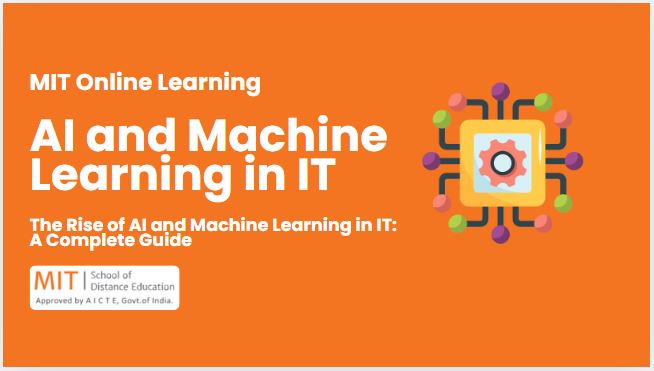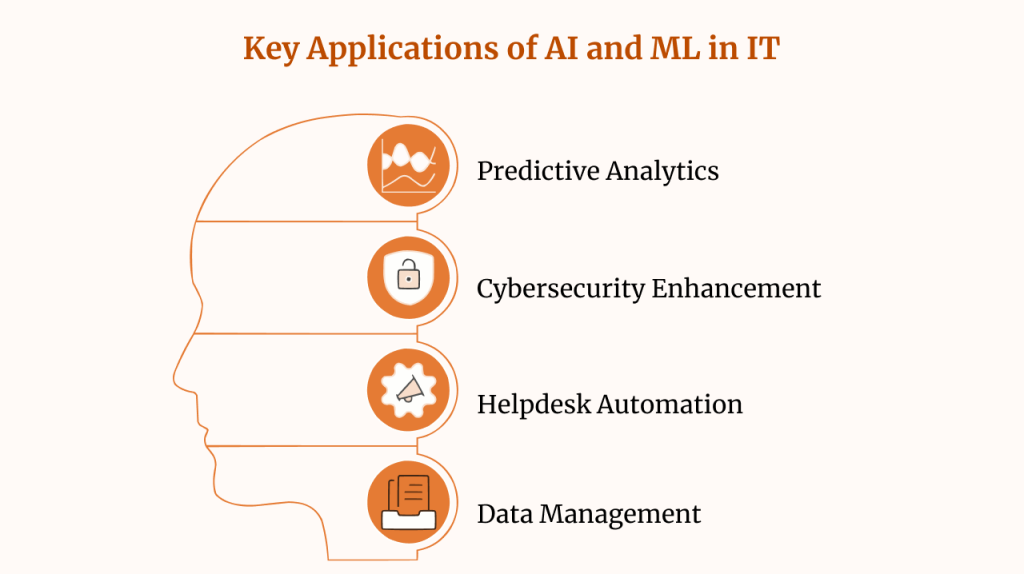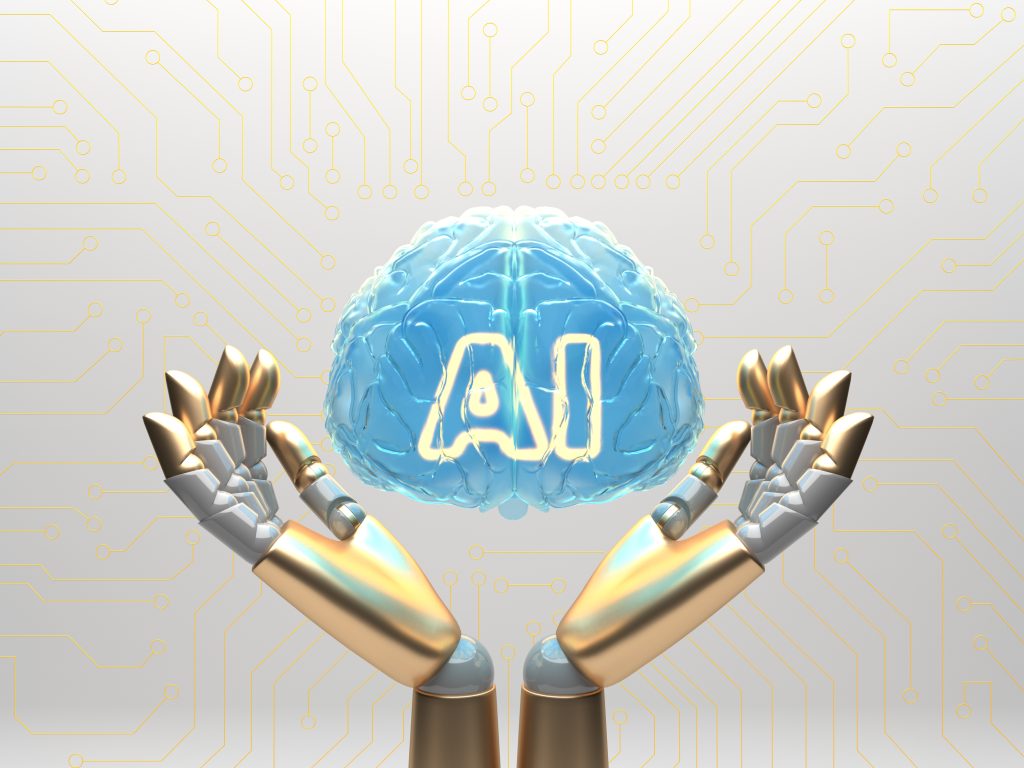
In today’s digital-first world, Artificial Intelligence (AI) and Machine Learning (ML) are transforming the very fabric of IT management. From automated infrastructure monitoring to intelligent cybersecurity systems, AI and ML are no longer futuristic—they are now essential elements in modern IT programs.
Whether you’re leading a tech team or exploring IT courses online, understanding how AI and ML are revolutionizing the industry is critical. In this guide, we explore the significance, use cases, benefits, challenges, and future trends of AI and machine learning in IT—and how IT certification courses can help you stay ahead.
1. Introduction to AI and Machine Learning in IT
Artificial Intelligence (AI) refers to computer systems that mimic human intelligence. Machine Learning (ML) is a subset of AI where machines learn from data to make predictions and decisions.
Their integration into IT is reshaping everything from IT management strategies to day-to-day tasks, making systems more autonomous, predictive, and responsive.
2. Why AI and ML Matter in IT
The adoption of AI and ML in IT is being driven by the demand for automated solutions, predictive analytics, and scalable digital ecosystems. Here’s why they matter:
- Smarter IT management with automated incident detection and resolution
- Efficient operations with minimal human intervention
- Advanced threat detection using real-time data analysis
- Improved decision-making through AI-powered insights
Modern IT training programs now include AI and ML modules to upskill professionals, given their growing role in the industry.
3. Key Applications of AI and ML in IT

a. Predictive Analytics
AI analyzes historical data to forecast performance issues and system outages, allowing proactive decision-making.
b. Cybersecurity Enhancement
AI-driven tools detect security breaches by identifying unusual patterns in data traffic.
c. Helpdesk Automation
AI-powered chatbots are used in IT management to resolve user issues, cutting down response times.
d. Data Management
ML algorithms classify, clean, and analyze large volumes of IT data faster than any human could.
These applications are increasingly featured in IT certification courses and IT courses online due to their real-world impact.
4. Real-World Use Cases in the IT Industry
IBM’s Watson AIOps
Utilizes AI to detect anomalies and automate IT operations, reducing system downtime.
Google Cloud’s AutoML
Empowers IT teams to build machine learning models with minimal coding knowledge.
Netflix
Uses AI and ML to analyze user behavior and optimize content recommendations and streaming speed.
Many professionals study these cases in detail through IT online classes and IT training programs focused on practical AI applications.
5. Benefits of AI and ML in IT Operations
a. Operational Efficiency
AI automates repetitive tasks, enabling better use of human resources.
b. Proactive Problem Solving
ML can predict and resolve issues before they impact users.
c. Cost Reduction
Intelligent automation reduces labor costs and resource wastage.
d. Enhanced Security
AI systems continuously monitor for threats and react in real time.
Today, many IT courses emphasize these benefits, particularly in executive IT management training.

6. Challenges in Adopting AI and ML in IT
a. Skill Gaps
AI/ML expertise is still limited in the current workforce. This is why updated IT certification courses and IT training programs are critical.
b. Integration with Legacy Systems
Existing IT infrastructure may not support AI tools without substantial upgrades.
c. Ethical Concerns
AI decision-making must be transparent and fair, especially in security and user data contexts.
These topics are commonly explored in advanced IT programs that cover ethical and technical AI use.
7. Future Trends in AI and Machine Learning in IT
a. AI-Driven IT Infrastructure
Self-healing networks and automated system optimization are on the horizon.
b. Edge Computing with AI
Data processing at the edge will reduce latency and improve performance in IT systems.
c. Personalized Learning for IT Professionals
Many institutions are now offering customized IT courses online focusing on AI and ML integration in real-world IT scenarios.
Keeping up with these trends through IT online classes is essential for career growth in IT.
8. How to Get Started with AI and ML in IT
Step 1: Enroll in Specialized IT Courses
Choose IT certification courses or PGDBA IT programs that focus on AI and ML fundamentals.
Step 2: Learn the Tools
Familiarize yourself with tools like TensorFlow, PyTorch, AWS SageMaker, and Microsoft Azure ML—often included in modern IT training programs.
Step 3: Work on Projects
Apply your skills through hands-on projects, which are a core part of many IT online classes.
Step 4: Join a Community
Engage with online forums and communities to stay updated on trends, solutions, and best practices.
Whether you’re a beginner or experienced professional, structured IT courses online can fast-track your AI and ML journey in IT.
9. Final Thoughts
The rise of AI and Machine Learning in IT is a game-changer. It’s reshaping IT management, improving system efficiency, and enabling smarter decision-making. As AI and ML continue to evolve, the demand for skilled professionals who understand these technologies will surge.
The best way to stay competitive? Invest in your education through specialized IT certification courses, IT programs, and IT courses online that focus on AI and ML.
From automated helpdesks to predictive analytics, AI and ML are redefining what’s possible in IT—and the future is just getting started.


